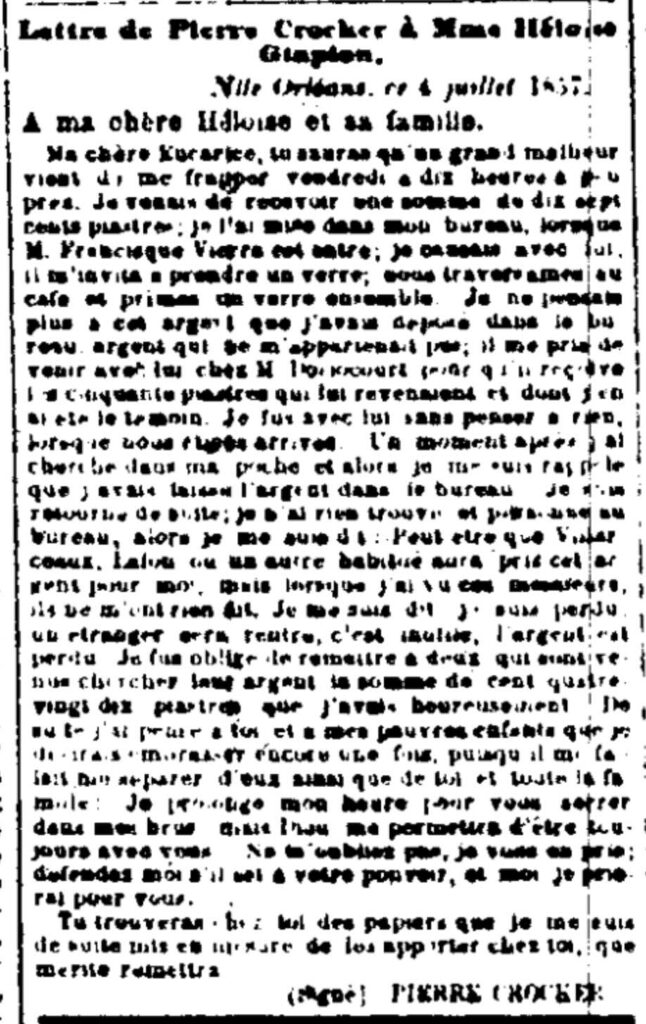In The Flow of Time – August 26, 2024
I’m reading a marvelous non-fiction work built off the journals of the Societé d’Economie, which started in New Orleans in 1836, and lasted to the 1950s. Economy Hall: The Hidden History of a Free Black Brotherhood did not disappoint. It is wonderfully written. And, be still my beating heart, it is based on original source material from the time.
It was a fraternal organization of free men of color. They were very upper crust, quite exclusive. I swear to god, they really thought that if they dressed right, spoke well, thought well, discussed well, displayed in public all the proper virtues of intelligent and well-heeled citizens, that white society would accept them as equals. They were wrong. But it’s a wonderful story of how hard they tried, and how they adapted over time.
As the years went by, they squabbled over this, that, and a few other things. For example, in 1875 they wanted their organization to make a continuing public statement in the face of Jim Crow bullshit. They decided, for every event, every funeral, every parade, they would have a marching band. But it had to be the right kind of music: loud, hopeful, modern, optimistic, in your face. Like the music being played when dozens were massacred by white supremacists near the Mechanics Institute. In a very scholarly way, right back atcha and in your face.
By that time they had English speaking members. One said, What about a brass band? The secretary asks, can you give me “brass band” in French? There is no equivalent. So the words “brass band” made it into the French minutes. After a squabble and a vote of course. 🙂
My interest is both general and specific. One is the general ambiance and atmosphere, what was going on in New Orleans throughout the 19th century as seen by these well-educated Creole men. The other is, characters in my novel were part of this organization, so what it does is likely to inform my plot. The author tells the story primarily from the point of view of Ludger Boguille, who was, for two extended periods, the society’s secretary. Ludger is absolutely making it into the story. He is new to me, but he fits in, in more ways than one. Pierre Crocker was ALREADY in the story, hence my intense curiosity.
Pierre was one of the original 15 founders. He was married, but later in life Heloise Glapion became his mistress. Heloise is Marie Laveaux’s oldest daughter. She and Pierre had several children together. He was, as far as I can tell, her only life partner. Heloise and her children lived with her mother Marie for most of that time.

Pierre Crocker was “somebody” in the free colored community. He was a member of the elite! I don’t know what else was going on in his life. But one day he put $1,700 into his office desk drawer, got distracted, went out socializing and drinking, then remembered. Oh Shit. The money was gone. He made his living as a trusted banker and trader, and he just lost a huge sum of someone else’s money.
That was July 2nd 1857 (or thereabouts). On July 4 he wrote a farewell to Héloise, and then he sent it to the editor of l’Abeille, The Bee. On July 7th he committed suicide. The paper printed the letter on July 14th, in French, for the entire city to read. “To my darling Heloise and her family… “
Put yourself in Heloise’s shoes. Your lover commits suicide, leaving you and your children forever. And then…. his suicide note shows up like an advertisement on the front page of the newspaper. And they printed it. Because lurid! Sensational! Muckraking. Soap Opera.
So, the downside of doing deep research. Guess what MUST make it into the story. Because it is the story of Marie Laveaux, and this happened to her and her daughter.




